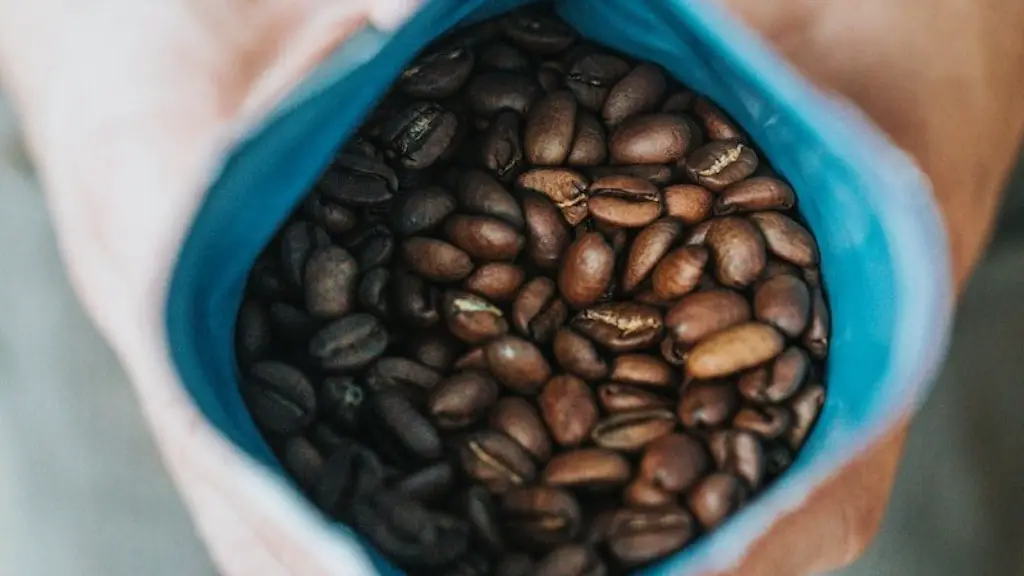Intermittent fasting (IF) is an increasingly popular approach to health and nutrition. During IF, individuals eat nothing for periods of time, allowing their bodies to fast for prolonged periods of time. As one might expect, a common question is whether it’s acceptable to drink coffee during intermittent fasting. The short answer is – yes! Coffee is often included as part of intermittent fasting plans, but it’s important to understand the potential implications of consuming coffee during this practice.
Coffee drinkers can find many benefits from IF. Caffeine, after all, is considered a stimulant and can help reduce feelings of hunger. In addition, coffee can reduce anxiety and enhance alertness, two benefits that can help speed up the body’s fat-burning process. Caffeine has also been found to increase metabolism and lower your risk of developing certain health problems.
On the flip side, drinking coffee during IF can also cause some drawbacks. Caffeine is diuretic, which means it can cause dehydration. Furthermore, excessive consumption of coffee may cause excess stress on the body, increasing cortisol levels and negatively affecting blood sugar levels. Finally, drinking coffee can disrupt the body’s natural cycle of eating and fasting, making it more difficult to achieve the desired effects of IF.
The best way to take advantage of IF while drinking coffee is to be mindful of the timing and quantity of consumption. For example, drinking a cup of coffee in the morning before beginning a period of IF can help to reduce hunger pangs and keep energy levels up during the fasting period. Likewise, drinking a cup of coffee a few hours before the end of the fasting period can help to boost metabolism and kick-start the digestive system.
It’s also important to understand the potential health consequences of drinking coffee while intermittent fasting. Individuals should be aware of the appropriate amount of caffeine they should consume each day. As a general rule, it is recommended that individuals limit their coffee intake to 400mg per day; and if possible, drink only one or two cups of coffee during IF.
Nutrition While Intermittent Fasting
Getting the right nutrition while intermittent fasting is important. During IF, it’s important to ensure that the body is getting all the vitamins, minerals, and other nutrients it needs to stay healthy. Eating nutrient-dense foods including fruits, vegetables, and lean proteins are recommended during IF, as these foods help to provide the body with the nourishment it needs.
Consuming high-fiber foods is also recommended during IF. Foods such as legumes, whole grains, nuts and seeds are rich in fiber and can help increase the feeling of fullness. Eating a balanced diet, especially when intermittent fasting, can help the body to get the nutrients it needs to remain healthy.
Staying Hydrated While Intermittent Fasting
In addition to consuming the right nutrition, staying hydrated during IF is also very important. Drinking plenty of fluids helps to keep the body hydrated and can help to sustain energy levels during this practice. Plain water is the best choice; however, other low-sugar options such as herbal tea or soft drinks can also be consumed.
It’s important to note that the amount of water you should drink will depend on your individual needs and the duration of your fast. Generally, it is recommended that individuals drink at least eight glasses of water per day, and it’s important to drink enough fluid to prevent dehydration or feeling weak and lethargic during IF.
Understanding Blood Sugar Levels
Finally, during intermittent fasting, it’s important to be aware of your blood sugar levels. Blood sugar levels can be affected by IF, and it’s important to monitor your levels to ensure that they remain within a healthy range. Eating a balanced diet, getting adequate sleep, and remaining stress-free are all important factors in maintaining healthy blood sugar levels.
For those with diabetes, it is important to carefully monitor blood sugar levels and adjust insulin or medication intake accordingly during IF. Speaking to a health care provider can help individuals to understand their individual needs for IF.
Fasting Protocols
Intermittent fasting involves following a set protocol to get the body into a fasting state. This may include limiting meals to a certain window of time, as well as following specific nutritional guidelines. While some individuals may choose to fast for 24 hours, others may prefer a shorter window of 12-16 hours. Following a particular fasting protocol helps to ensure that the body is able to enter and remain in a fasting state for a sustained period of time to get the maximum effect of IF.
Some protocols may also call for certain “off-days” where normal eating habits can resume. On off-days, individuals may not need to follow the same dietary guidelines as on fasting days, though it is important to be mindful of portions and consume nutrient-dense foods. This can help to sustain energy levels, manage hunger, and still see the health benefits of intermittent fasting.
Benefits of Intermittent Fasting
Intermittent fasting is touted for its numerous health benefits, and when done properly, can yield some positive effects. These include improved cognition and mental clarity, improved metabolism and weight loss, improved cardiovascular health, and reduced inflammation. Furthermore, IF can help to increase longevity and protect against age-related diseases.
To reap the full benefits of intermittent fasting, it is important to understand the different components involved, including nutrition, hydration, and blood sugar levels. The body needs to be correctly nourished and hydrated in order to support the fasting process and achieve the desired results. Likewise, understanding the effects of consuming coffee while intermittent fasting is important, as it can help to optimize the benefits while minimizing any potential health risks.



